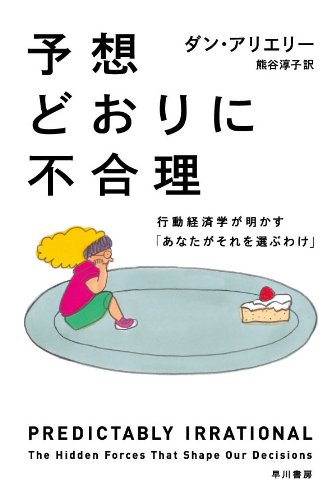- Published on
Why do so many options make you feel unhappy? ~The price of "keeping the door open" is too expensive~
Source: Dan Ariely, "Absolutely as Imaginable" (Hayakawa Publishing)
Roughly speaking
- We are extremely afraid of "losing opportunities" and we try to continue to open all our options (doors) desperately, even if we know it will be a disadvantage.
- In Dan Ariely's "Door Annihilation Game" experiment, people took the irrational behavior of reducing the overall rewards they earned, just to prevent the door from disappearing.
- In modern society, true freedom is not "the choice of anything." Rather, it is to have the courage to consciously "close" an unimportant door.
Introduction: "That and That" tragedy of teaching
"I don't want to narrow my career possibilities, so I attend study groups in various industries," "I don't know who my soulmate is, so I continue to interact with multiple matching apps," "I don't know which side job I'll get, so I'm slowly clevering about blogging, video editing, and programming."
Do you think you have any thoughts? We try to maximize our future potential, so we try to keep all our options (doors) half open. However, as a result, they are unable to step into any door in earnest, waste only time and energy, and end up not being able to achieve anything. This "undecided disease" is a deep-rooted problem that modern people face.
In "Expectedly Absurd," Dan Ariely exposed the true nature of this strange obsession in the light of a day through a clever game experiment.
Disappearing doors and our stupid choices
The "door game" devised by Ariely beautifully reflects our irrational actions.
[Game Rules] Participants click on the three doors (red, green, and blue) that appear on the computer screen to move around the room. You'll receive money every time you click while you're inside the room. The amount you get varies depending on the room. Participants can click in total 100 times.
Naturally, a reasonable strategy is to find the most rewarding room, stay there and continue clicking. But Ariely added a mean gimmick here.
[Meaning gimmick] The doors of the room that hadn't been in for a while gradually smaller and smaller, and eventually ** completely disappear and you will never be able to enter again**.
This mechanism dramatically changed people's behavior. Even though participants were in a room with a high reward, they were bothered by the disappearing door. They forgot their original purpose of earning rewards, and began to go back and forth between the low-reward rooms just to prevent the door from disappearing. As a result, the amount they earned was significantly less than when the doors were set up to remain undisturbed.
We feel unbearable the "loss" of losing our options and are desperate to keep the door open, even if we know that it will lead to unfavourable consequences overall.
Why can't we close the door?
Behind this irrational behavior is entwined with several psychological factors.
Loss aversion: Closing the door is visible to us as a concrete "loss". We are desperate to avoid this loss because we feel the pain of losing something more than the joy of gaining something.
Ignore opportunity cost: On the other hand, the "profits (opportunity costs) that could have been gained from other possibilities" that are lost by sticking to one door are invisible. We are distracted by small immediate losses and ignore the bigger, invisible losses.
Students continue to appear at company information sessions that aren't particularly interested in when looking for a job, and people who continue to have a lazy relationship without making up their minds to break up with their lover. They may also continue to pay the price for "keeping the door open."
[Improvement proposal] The courage to consciously close the door and concentrate
In today's world, information and options are explosive, this problem is becoming even more serious. So, what should we do?
Keep consciously closing an unimportant door: First, practice consciously cutting off options that are less important to you. "I don't go to drinking parties that I'm not interested in," "Cancel subscriptions that I'm not using," "Deleting social media accounts that I continue to use." It's fine from the small door. It is important to experience the feeling that closing it will release time and spiritual energy.
Look and compare to two doors: If you're overwhelmed by the many options, don't force yourself to compare them all, but narrow it down to the "most attractive two" in your intuition. Then, we will thoroughly compare and consider only those two. This dramatically reduces the burden on decision-making.
Keeping all the doors open is the same as saying you don't really live in any room. Choosing and closing one door is not about losing anything. Rather, it is a proactive first step towards serious commitment to something you have chosen.
Conclusion: Unchoice freedom is the ultimate luxury
In the past, the wide range of options was a symbol of wealth. However, in today's world where there are endless options, true abundance may not be "freedom to choose anything", but "freedom to choose".
Identify which doors are really important to me, and close the rest of the doors without hesitation. That courage will free us from the half-hearted lives of "that and this" and will allow us to concentrate on something truly valuable.
[Actions to encourage action] This "keeping the door open" problem is deeply involved in important life decisions, such as choosing a university major, changing your career, and choosing a marriage partner. In "Absurd as Impossible" we portray our irrational choices at even higher prices in a sharp and humorous way. Please pick up this book and learn how to deal with the "door" of your life.

